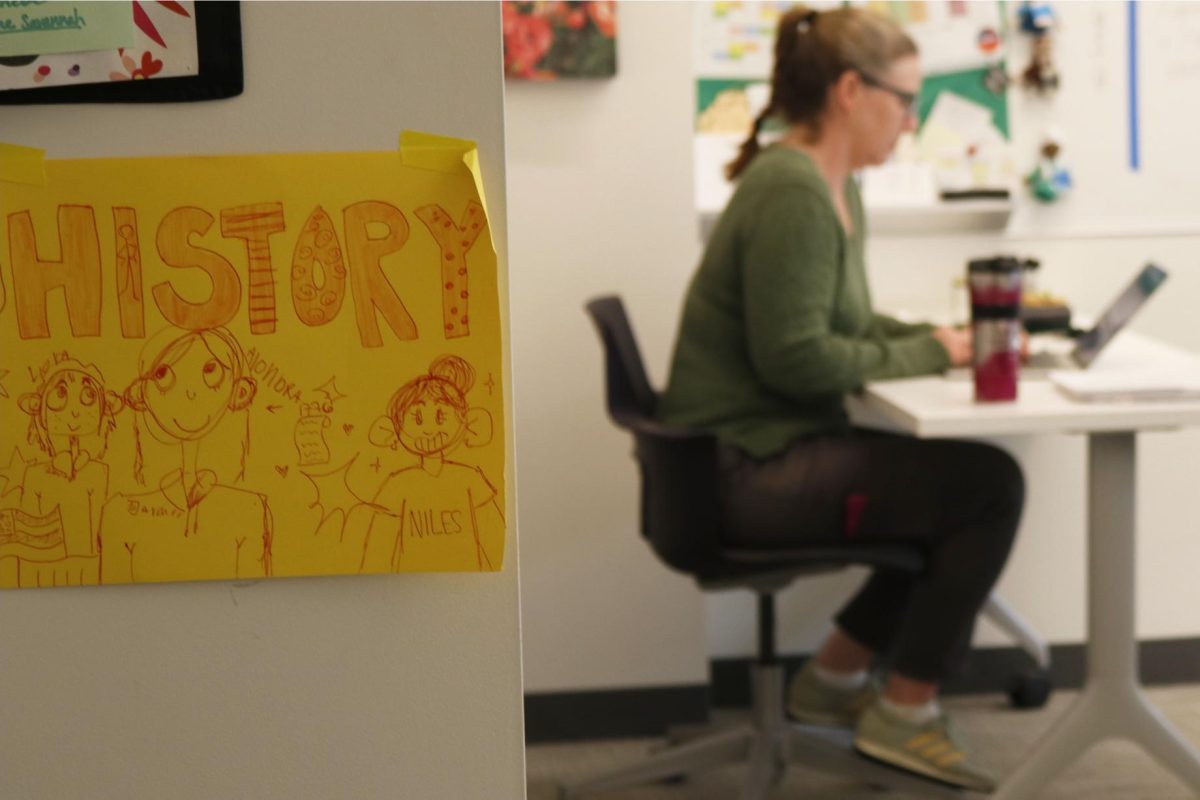“It’s one thing not to know where your keys are. It’s another thing not to know what keys are for.”
This is how Ilene Feder — a full-time caregiver for her mother, who suffers from memory loss — describes the effects of dementia.
The National Institute of Aging defines dementia as an umbrella term for a disease that causes people to suffer from “the loss of cognitive functioning — thinking, remembering and reasoning — to such an extent that it interferes with a person’s daily life and activities.” Alzheimer’s is a form of dementia that leads to cognitive decline over time and cannot be used interchangeably with dementia.
Struggling with dementia is difficult, but accessing proper care can be even more challenging for individuals of lower socioeconomic status.
This situation worsens in large cities like Los Angeles since “37% of residents live below 200% of the Federal Poverty Level,” which refers to earning less than $52,000 annually. These individuals also have less access to resources and the proper care for a disease with such immense impacts. Genworth’s 2023 Cost of Care survey found that “the average cost of assisted living in California is $6,250 per month.” According to Alzheimer’s Los Angeles, the city has one of the highest percentages of deaths by dementia in California.
Dementia and Who It Affects
According to the Population Reference Bureau, those who are at the highest risk of getting dementia are women, people 85 or older and those of racial and ethnic minorities.
“It is not a personal disease. It’s really a family disease … Like any other thing, like drug addiction and alcohol addiction and mental illness, it affects everybody.”
— Ilene Feder, daughter of a parent who was diagnosed with dementia
“It is not a personal disease. It’s really a family disease … Like any other thing, like drug addiction and alcohol addiction and mental illness, it affects everybody.”
— Ilene Feder, daughter of a parent who was diagnosed with dementia
Women are more likely to develop dementia for biological reasons as well as cultural reasons. A recent study by the Alzheimers Association found that work, education and family patterns put women at a higher risk of developing dementia. Discrimination can increase the risk of dementia for people of racial and ethnic minorities, according to a study that found a direct correlation between racism and memory loss.
Ronald Sue, an attending physician at the Department of Medicine at Cedars-Sinai Medical Center, said having a family history of dementia, brain trauma or abuse of harmful substances also puts individuals at high risk of developing dementia.
“For instance, excessive smoking, excessive alcohol, excessive drug abuse — these are all factors that will predispose to any one of a number of different forms of dementia,” Sue said.
Hart Cohen, a neurologist at Cedars Sinai, explained that people who have previous illnesses who are not being properly taken care of are at a greater risk of developing dementia at an earlier age.
“So we’re finding that, let’s say, diabetics who are not under great control [and] people with cholesterol and cardiac problems who are not under good control, not exercising,” Cohen said, “those patients are likely — if they’re going get dementia — they’re likely to get it earlier than people who have excellent medical care, who could probably delay the onset of dementia.”
Feder also took care of her deceased father, who was diagnosed with Alzheimer’s. She said dementia affects not only the diagnosed person but also the people around them.
“It is not a personal disease. It’s really a family disease,” Feder said. “Like any other thing, like drug addiction and alcohol addiction and mental illness, it affects everybody.”
Socioeconomic Barriers
The Alzheimers Association explains that people who “experience high socioeconomic deprivation … are significantly more likely to develop dementia compared to individuals of better socioeconomic status, even at high genetic risk.” Sue said the cost of care for dementia patients in general doesn’t just depend on the severity of their illness, but also on whether they qualify for evaluation, which includes a series of medical tests that add to the overall cost of care.
Cohen also said, without the proper funding and a physician who fights to get their patient the care they need, achieving the full memory recovery that most people desire when seeking help with cognitive problems is even more difficult.
“If you don’t have that kind of access and connection, you know, you could be waiting months,” Cohen said. “So even in LA, I think there’s quite a disparity, and I think that socioeconomic status probably plays a role in that as well.”
Freshman Bridgett Levy said one of the most difficult aspects of her great-aunt’s journey living with dementia was finding the proper care. Due to the high cost of care, her extended family has taken on the responsibility of caring for her great-aunt.
“I mean, assisted living houses are really expensive,” Levy said. “And it’s basically paying another rent to take care of her, so it’s fallen on my family instead of having someone else to help out.”
Listen to the audio clip below to hear Dr. Hart Cohen talk about how education and funding are essential to treating people with dementia.
Disparity in California’s Medical Care System
According to an LA Times article, four counties in Southern California have the highest number of people living with Alzheimer’s in the nation. Los Angeles ranked first on that list, with almost 200,000 people diagnosed with Alzheimers.

Cohen said, even though he has only ever practiced in LA, he sometimes receives patients from other states who tell him that they had to wait about a year to get an appointment with a neurologist.
“My understanding is that there is quite a lot of variability,” Cohen said. “I recently saw a patient who traveled here from Montana because they had a relative living here, and they told me that, in Montana, it would have taken about a year to get in to see a neurologist. So there’s definitely limited access and limited numbers of neurologists in certain states.”
Cohen discussed how access to dementia care looks different for those with just Medi-Cal and not Medicare. Medi-Cal is a system that uses state and federal dollars to pay for various medical services for adults and children who are low income, while Medicare is a federally funded insurance program for people 65 and older.
“People that only have Medi-Cal and don’t have Medicare, I think they have more difficulty because most of the physicians at Cedars don’t take straight Medi-Cal,” Cohen said. “I imagine it’s true for, you know, a lot of the major centers. I think people that have Medicare, though, and have a primary care physician mostly can get access.”
Levy said finding health care for dementia patients in California is much different from other states because of the increase in the cost of living. With 720,000 people aged 65 and older living with Alzheimer’s in California, income is essential to improving the quality of life for dementia patients and their families.
“I think that other states might have better health care plans to deal with this,” Levy said “but California just isn’t suitable when looking for affordable care plans for elderly dementia patients.”
Along with the struggles of paying for dementia care, caregivers must also try to ensure the happiness of their family members, even if it means playing into their disjointed narratives. Feder explains that while she took care of her father, he would often ask questions that made no sense. She said she would continually say “yes” to avoid upsetting him.
“My father used to sit outside in his big chair and look out. He goes “‘Is that all mine? Do I own all of that?’ [while] looking out at Mulholland,” Feder said. “We’d just go ‘yes’. You just agree.”
Although Feder lost her father, her story mirrors the experiences of so many other people in California who struggle to balance the cost with the emotional impacts of dementia care.









Shae Killam • May 7, 2024 at 9:28 pm
Gabby, I read the first line and I was already amazed! Your such a talented journalist!
Charlotte Burnap • May 7, 2024 at 4:59 pm
Congrats on publishing this amazing story Gabby!! Such an interesting and powerful piece filled with so much thought and care! That closing quote is so striking. Words cannot describe how proud of you I am :)))
Vivianne Arnold • May 7, 2024 at 1:02 pm
Gabby, this is a PHENOMENAL article!! All the congratulations to you for writing this piece, it’s so well written and interesting to read. This is something I hadn’t known much about before, and you put so much care into creating such a beautiful article.